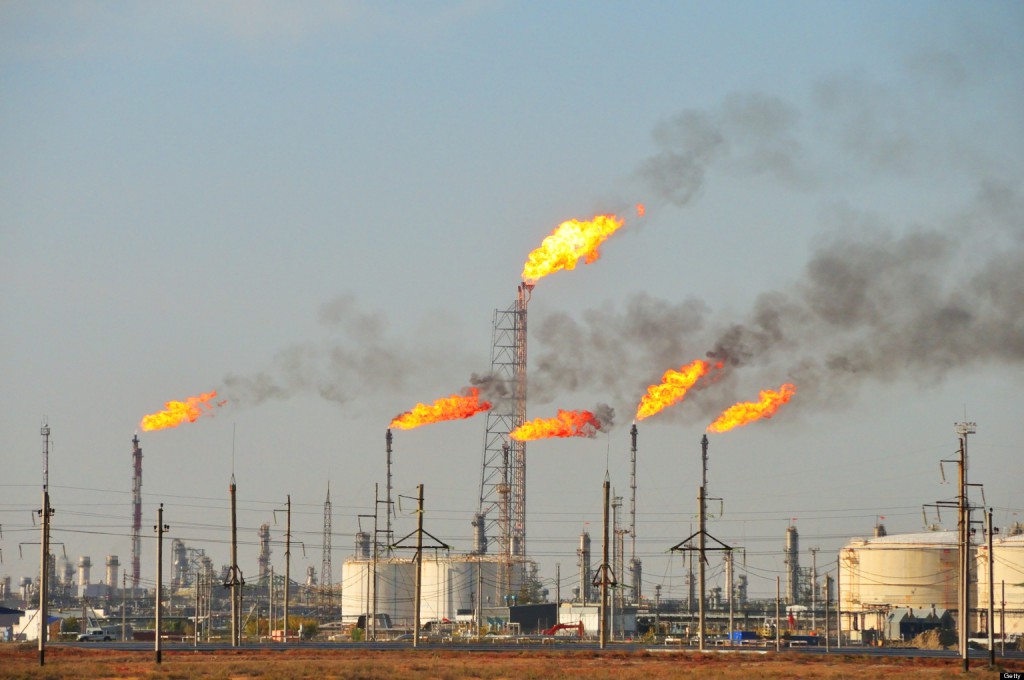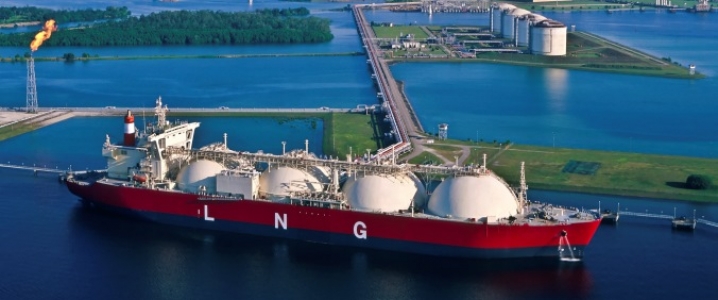Energy
Oil export rakes in N1.8tn in March – Report
Nigeria’s revenue from crude oil export increased by N337billion in March, hitting N1.8trillion, according to data obtained.
This came as the country attained its crude oil production target of 1.6 million barrels per day in March, from 1.3 million barrels per day recorded in February. Output for January was 1.25mbp while that of February was 1.3mbp.
Shipping data from Refinitiv Eikon seen by newsmen showed that the country attained 1.6mb/d production target for the first quarter of 2023.
The country’s output increase has in turn contributed significantly to the 28.90 mbpd of oil produced by the Organization of Petroleum Exporting Countries (OPEC) for the month of March.
The Minister of Finance, Budget, and National Planning, Zainab Ahmed, had in December 2022, during the World Bank’s Nigeria Development Update and Country Economic Memorandum in Abuja, said the country planned that its crude oil production would hit 1.6mbpd by the first quarter of 2023.
A leap in production by 300, 000b/d in March means the country’s production has shot up by 9.3 million barrels in the period under review. Total production for the month was 49, 600, 000 barrels.
While Brent’s international price was $77per barrel, Nigeria’s Bonny Light was sold for $78 in March. This means the country raked in extra N337billion for the month. Total revenue from crude oil production was about N1.8trillion.
Nigeria had been unable to meet OPEC production quota in the last one year.
During the Federation Account Allocation Committee meeting last September, a presentation by the NNPCL said Nigeria lost as much as 8.14 million barrels in August.
Report the contribution of the oil sector to the Gross Domestic Product of the country fell to 5.7 per cent in the third quarter of this year, according to the National Bureau of Statistics data.
Ahmed had said the nation’s Excess Crude Account crashed by 89 per cent in the last eight years, moving from $4.1billion in November 2014 to $472,513 in the same period of 2022.
Energy
Enugu Electricity Distribution Company implements tariff reduction for Band A customers in South-East region


The Enugu Electricity Distribution Company (EEDC) has announced a reduction in electricity tariffs for customers in the Band A feeders across the South-East region.
This decision follows the directive issued by the National Electricity Regulatory Commission (NERC), instructing all 11 Discos to adjust their tariffs to N206.80/kWh instead of the previous rate of N225/kWh for customers in Band A feeders.
The announcement was made in a statement released by Mr. Emeka Ezeh, the spokesperson for EEDC, in Enugu on Monday.
The statement reads: “We wish to inform our valued customers that the end-user tariff for our Band A feeders has been revised downwards from N225/kWh to N206.80/kWh under MYTO 2024, effective from May 6, 2024.
“We assure our customers that the daily minimum 20-hour supply will continue uninterrupted. Please note that the end-user tariffs for Bands B, C, D, and E feeders remain unchanged.”
Energy
Oil firms lose N341bn to gas flaring in 12 weeks


Nigeria reportedly lost N340.87 billion to gas flaring in the first quarter of 2024, as oil and gas firms operating in the country’s oil and gas sector flared 83.9 billion standard cubic feet (BSCF) of gas in three months (January and March 2024), according to latest data released by the National Oil Spill Detection and Response Agency (NOSDRA).
In its report for the period, NOSDRA noted that the amount lost to gas flaring was 10 percent higher than the $266.9 million, about N309.871 billion, lost in 2023.
According to the environmental watchdog, the volume of gas flared in the first quarter of 2024 emitted 4.5 million tonnes of carbon dioxide into the atmosphere and was capable of generating 8,400 gigawatts hour of electricity, while the offending companies were liable for the payment of fines totalling $167.7 million, an equivalent of N194.699 billion.
In comparison, NOSDRA noted that between January and March 2023, the oil firms flared 76.3 billion SCF of gas, which was valued at $266.9 million (N309.871 billion); was capable of generating 7,600 gigawatts-hour (GwH)of electricity; contributed 4.1 million tonnes of carbon dioxide emission, with the firms liable for penalties of $152.5 million, an equivalent of N177.053 billion.
This was even as power generation is expected to increase by 500 megawatts (MW) in the second quarter of 2024, driven by new power plants and rehabilitated facilities.
Specifically, thermal power generation is expected to remain dominant, but renewable energy sources like solar and wind are expected to gain traction; while transmission and distribution constraints are expected to persist, affecting power availability and reliability.
Furthermore, giving a breakdown of gas flared by production segment, the environmental regulatory agency stated that oil and gas firms operating in the country’s onshore oil space flared 42.5 billion SCF of gas in the first three months of 2024, accounting for 50.72 percent of total gas flared.
NOSDRA added that the gas flared onshore was valued at $148.9 million, about N172.873 billion, with penalties payable of $85.1 million, an equivalent of N98.8 billion; while it contributed 2.3 million tonnes of carbon dioxide to the atmosphere and had the potential to generate 4,300 GwH of electricity.
In the same period in 2023, companies operating onshore, caused the country a loss of $130 million (N150.93 billion), from the flaring of 37.1 billion SCF of gas, which has power generating potential of 3,700 GwH and contributed two million tonnes of carbon dioxide emissions, while penalties payable by the companies stood at $74.3 million (N86.262 billion).
On the other hand, companies operating offshore flared gas valued at $144.7 million, accounting for 49.28 per cent of total gas flared in the first three months of 2024.
Specifically, the companies flared 41.3 billion SCF of gas; 5.63 percent higher than the 39.1 billion SCF flared in the same period in 2023; while the quantity flared elicited penalties of $82.7 million, carbon dioxide emission of 2.2 million tonnes and had power generation potential of 4,100 GwH.
Comparatively, in the same period in 2023, offshore companies flared 39.1 billion SCF of gas valued at $136.9 million, with power generation potential of 3,900; carbon dioxide emission of 2.1 million tonnes and penalties payable of $78.2 million.
Some of the offending companies, according to NOSDRA include Shell Petroleum, Development Company (SPDC), Nigerian Petroleum Development Company (NPDC), Chevron Nigeria, Mobil Oil, Elf Petroleum Nigeria, Nigeria Agip Oil Company (NAOC), Addax Petroleum, Texaco Overseas (Nigeria), Esso Exploration and Production Nigeria, Allied Energy Resources, Ultramar Petroleum, Atlas Petroleum; Cromwell and South Atlantic Petroleum, among others.
These companies flared gas from Oil Mining Leases (OML) 04, 05, 11, 13, 14, 17, 18, 22, 28, 23, 24, 38, 40, 42, 43, 72, 49, 54, 90, 95, 67, 70, 104, 59, 99, 100, 101, 102 and Oil Prospecting Licences 222, 3.
Energy
Nigeria earns N1.26trn from gas exports in 12 weeks


Nigeria secured N1.257 trillion from the export of natural gas and other gas products in the fourth quarter of 2023, according to data released by the National Bureau of Statistics, NBS.
The NBS, in its Foreign Trade Report for the Fourth Quarter of 2023, stated that the amount earned from gas export in the period under review was 78.88 per cent higher than the N704.878 billion recorded from gas exports in the same period in 2022.
According to the NBS, gas exports accounted for 9.9 percent of total exports in the fourth quarter of 2023, compared with 11.08 per cent in the same period in 2022.
Giving a breakdown of gas exports in 2023, the NBS reported that natural gas export stood at N1.02 trillion, other petroleum gases export stood at N150.662 billion, while the country earned N90.705 billion from liquefied petroleum gas export, accounting for eight per cent, 1.19 per cent and 0.71 per cent of total exports, respectively.
Specifically, natural gas, other petroleum gas and liquefied petroleum gas exports ranked second, fourth and seventh most exported commodities in the period under review.
In comparison, in the fourth quarter of 2022, the country only exported natural gas, valued at N704.878 billion, ranking the second most exported commodity and accounting for 11.08 per cent of total export in the fourth quarter of 2022.
In its analysis of exports in the fourth quarter of 2024, the NBS said, “Further analysis on fourth-quarter trade by partners shows that the top five export destinations were the Netherlands with N1.910 trillion or 15.05 percent, India with N1.101 trillion or 8.68 per cent, Spain with N1.030 trillion or 8.11 percent, Canada with N907.64 billion or 7.15 percent, France with N799.77 billion or 6.30 percent of total exports.
“Altogether, exports to the top five countries amounted to 45.29 percent of the total value of exports. The largest exported product in the fourth quarter of 2023 was ‘Petroleum oils and oils obtained from bituminous minerals, crude’ valued at N10.311 trillion representing 81.23 percent, this was followed by ‘Natural gas,’ with N1,015.84 billion accounting for 8.0 percent and ‘Urea, whether or not in aqueous solution’ with N251.90 billion or 1.98 per cent of total exports.”
In general, the NBS said, “In the fourth quarter of 2023, Nigeria’s total trade stood at N26.802 trillion. Exports were valued at N12.694 trillion while imports amounted to N14.108 trillion. On an annual basis, total trade was N71.880 trillion, of which imports amounted to N35.918 trillion, and exports were recorded at N35.962 trillion.
-
capital market2 years ago
Rt.briscoe, FBNH, Others halts negative performance of stock market
-
Finance3 months ago
Court orders Sen. Victor Umeh to repay N136m bank debt to AMCON
-



 Abuja Update2 months ago
Abuja Update2 months agoUNDP, FG partnership needed to achieve inclusion, equity- Minister
-
Abuja Update1 month ago
Banks drive stock market performance with N147bn gain
-



 Business2 weeks ago
Business2 weeks agoTingo Group unveils Tingo Electric, Tingo Cola drink at Lagos launch
-



 Health3 weeks ago
Health3 weeks agoCapacity training will reduce migration of health workers- NPHCDA
-
News4 months ago
Oil thieves sponsoring malicious media campaign against Navy – Spokesman
-



 Infotech1 month ago
Infotech1 month agoWorld Backup Day: NITDA urges Nigerians to ensure backup of data
















